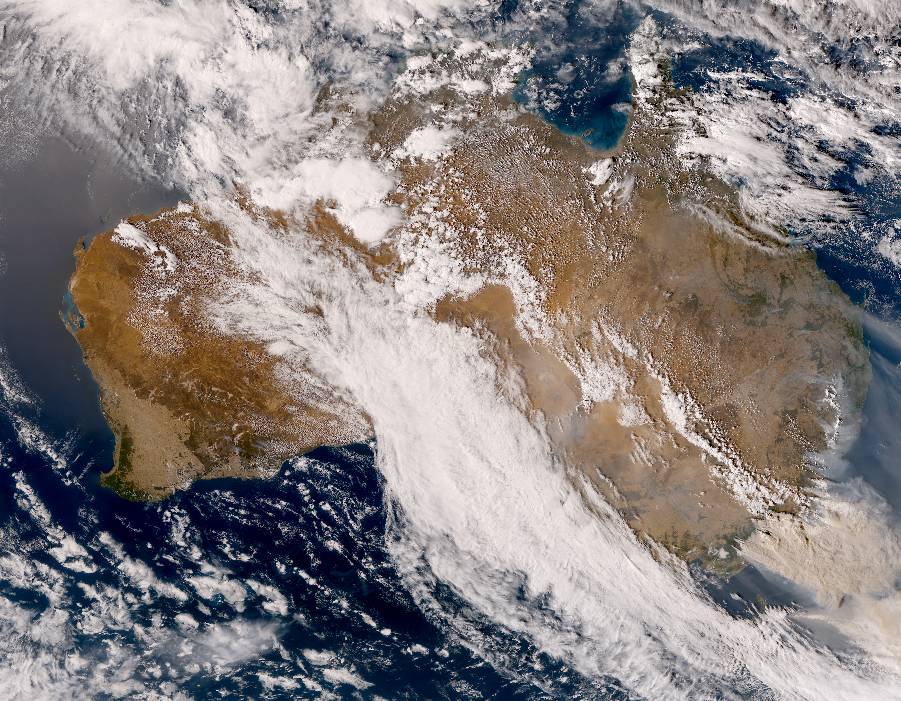1.25 Billion Animals Killed as Australia’s Megafires Continue
Photo Courtesy of Japan Meteorological Agency
The Australian megafires as seen by the Himawari 8, a Japanese weather satellite show the overhead conditions of the continent. Smoke from the fires in Australia has reduced air quality, forcing citizens to evacuate, and has reached as far as Chile, according to NPR.
Following a lengthy dry spell in Australia, a megafire has destroyed 6.3 million hectares of land as of Jan. 10. The 135 bushfires that have been raging since September across New South Wales and Victoria have merged into one large megafire as high winds continue to exacerbate the problem, according to NPR.
“It’s important to give back as a [community] member because it is fulfilling your role as a volunteer to prevent human suffering in the case of emergencies,” junior and co- president of Red Cross Club Kevin Sheng said. “By becoming a volunteer or even just donating to the Australian Red Cross, you are taking small steps to help with the emergency.”
The fires are negatively impacting Australia’s endangered native species, such as kangaroos and cockatoos.
“Hundreds of species have been affected by these fires,” Australian National University ecologist Sarah Legge said in an interview with Vox. “Some of these will be brought to the brink of extinction as a result of this event. It’s awful. It will be ecosystem collapse in a lot of cases.”
The Australian wildlife agency WWF estimates that 1.25 billion animals have been killed in the fire, while the Australian government estimates 100,000 livestock animals have died. Half of Australia’s koala population has been lost among many other declining species native to Australia.
“I think this is a pretty critical issue in terms of biodiversity [since] we know there’s a lot of animals and plants and ecosystems being dramatically damaged in addition to humans,” environmental science teacher Katie Levensailor said. “The best thing for people to do is to get educated about what’s going on and reach out to communities where they do service and see how they can best be of service.”
Australian Prime Minister Scott Morrison has drawn criticism for his government’s role in denying the link between drought, climate change and the fires. His vacation to Hawaii while Australia’s fires were on the rise only added fuel to the fire, as protestors took to the streets holding posters depicting him that said, “MISSING. Your country is on fire,” according to the New York Times.
Even with the geographic separation from Australia, people all over the world are impacted by the fires.
“We’re all a part of this planet. What’s happening in Australia doesn’t stay in Australia, so even though it’s very far, because of this common air and common water and common mutual resources, what happens there impacts us,” Levensailor said.
Your donation will support the student journalists of Portola High School. Your contribution will allow us to purchase equipment and cover our annual website hosting costs.

Minnah Tanzeen is one of your staff writers for the Portola Pilot. As a new member of the Portola Pilot team, she is excited to write newsworthy stories...

Krisha Konchadi is the front page editor this year on the Portola Pilot. Along with editing and creating the front page, she loves making graphics and...




